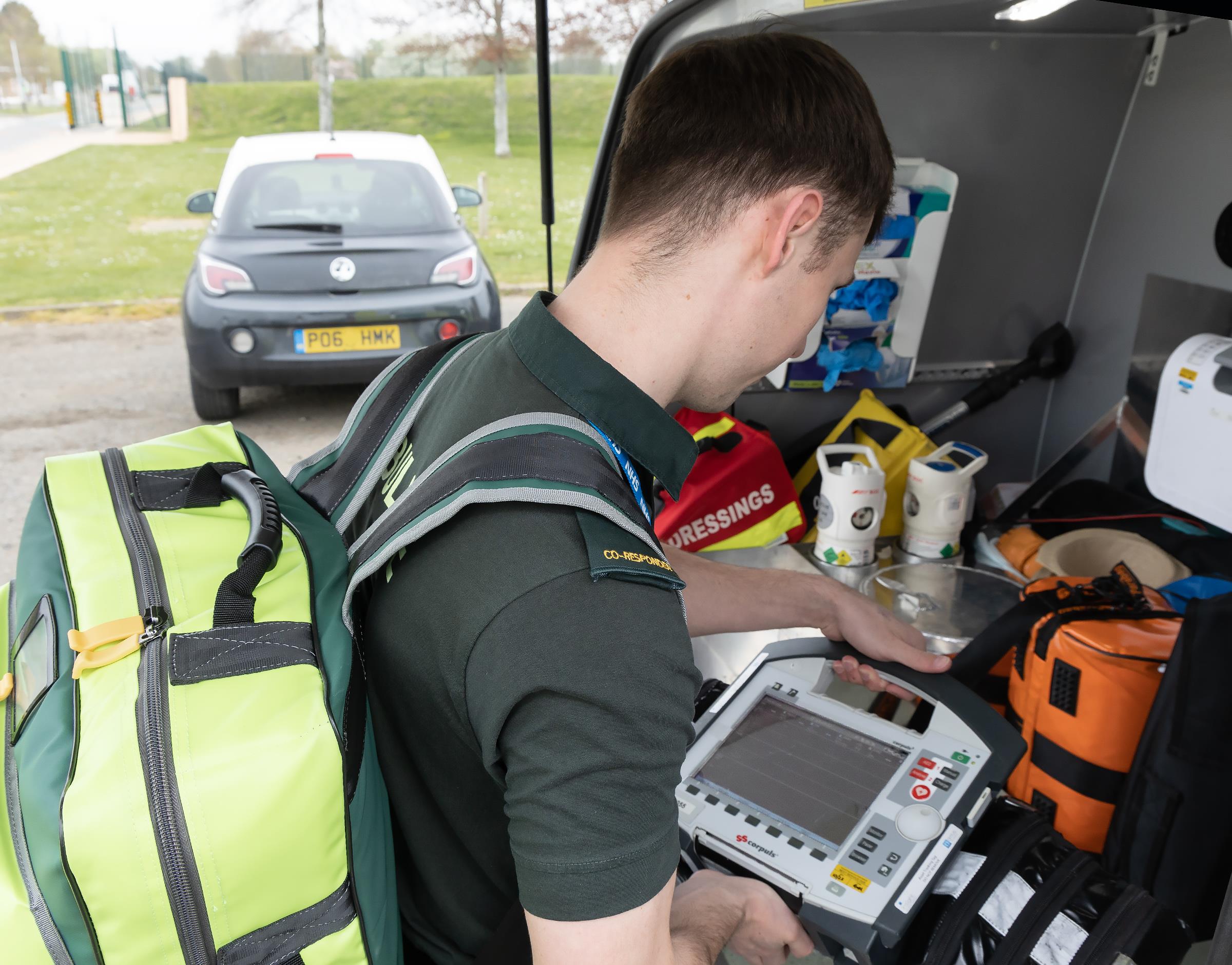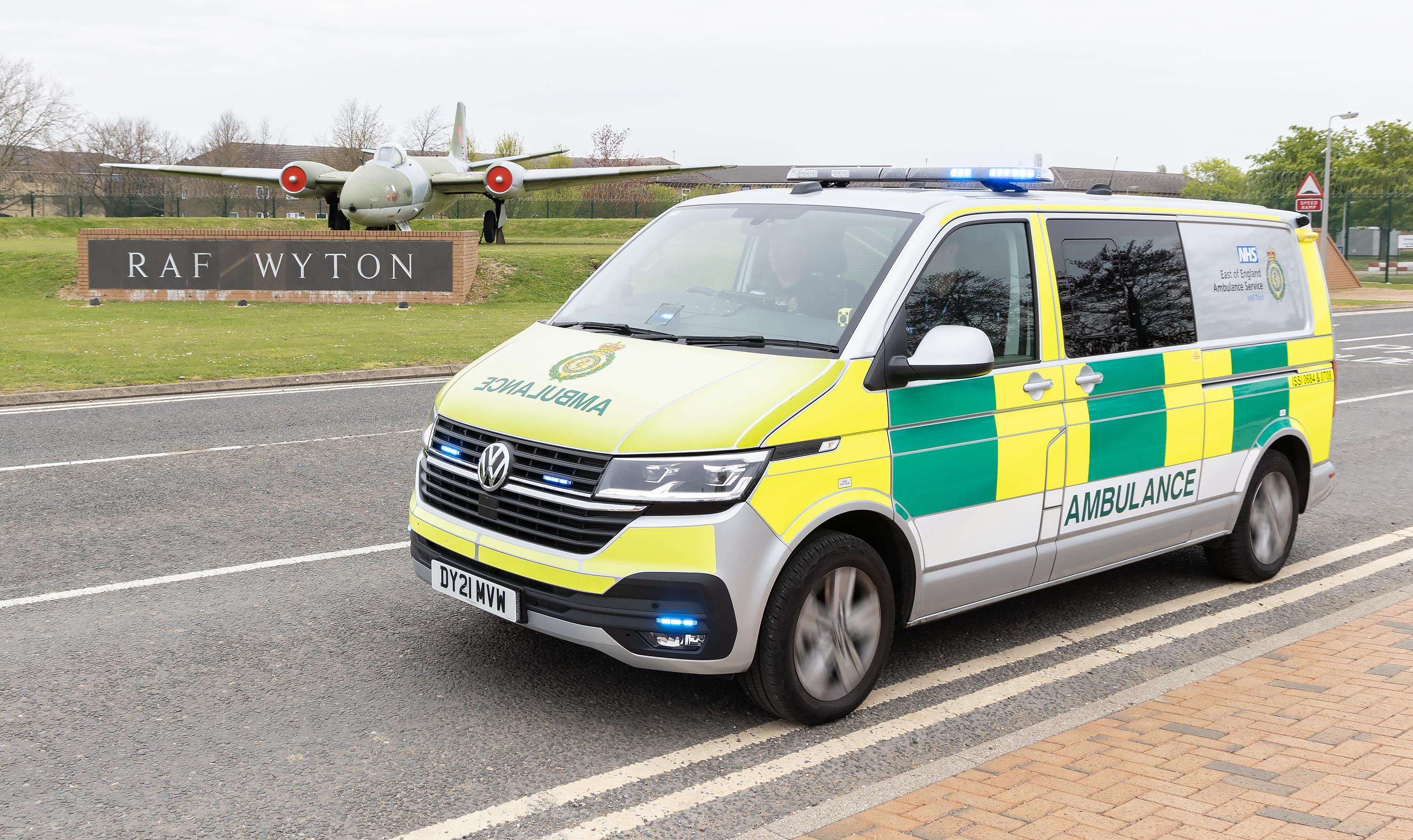Partner working ensures fast response when seconds count
Date: 19 October 2023
Time: 09:00
In addition to its network of over 1,000 civilian Community First Responders, the East of England Ambulance Service NHS Trust works closely with specially trained Fire and Rescue colleagues and military co-responders across the region who will step up to emergency calls for those minutes until our crews arrive.
There are 14 fire stations in the EEAST region where crews respond to predominantly cardiac arrest calls (in Bedfordshire crews also attend other categories of urgent calls).
There are also four military co-response teams based at RAF Henlow, RAF Marham, RAF Wyton and RAF Honington.


The RAF Wyton co-response team
Since April this year, these collaborative teams have attended 912 calls including 54 cardiac arrests.
Chief Executive of EEAST Tom Abell said:
“Having specially trained volunteers like our Community First Responders, our colleagues from the Fire Service and from the military can make a real difference when someone has stopped breathing.
“We value the contribution they make in situations where seconds count – especially in rural areas where it is often more difficult for us to get ambulance crews on-scene as quickly as we would wish.”
Cromer Fire and Rescue becomes the latest co-responder station
Cromer Fire Station is now the third in Norfolk to take on co-responding duties in partnership with EEAST colleagues as part of our Emergency Medical Response (EMR) programme. Crews have received training from EEAST enabling them to assist ambulance colleagues in responding to members of the public over the age of eight suffering cardiac arrests in the community.
Other fire stations in Norfolk which are part of the scheme are Sheringham and North Walsham.
The stations agree to mobilise within a 10-minute radius of where EEAST crews are responding and always attend with an EEAST crew to perform lifesaving interventions including basic life support and defibrillation.
Area Manager Paul Seaman said: “We can already see our efforts in this voluntary aspect of our work making a real difference to our communities by helping to save lives, which is what our service is all about.
“Our fire stations, especially in more rural parts of the county, are in a unique position to play a vital role in improving the survivability rate of cardiac arrests in our community.”
The next co-responder station due to join the programme this autumn will be Dereham.
To find out more about how you can join our team of volunteer first responders, visit our website.
- Summary:
We work closely with specially trained civilians, Fire and Rescue colleagues and military co-responders across the region.
